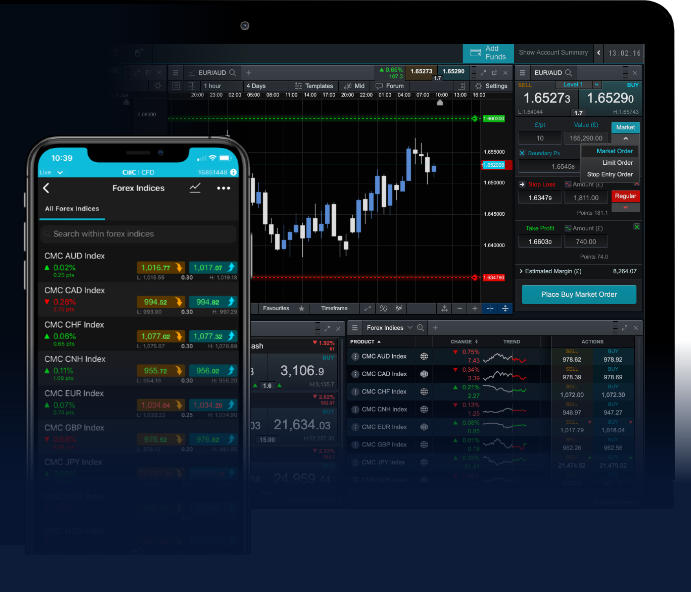
Understanding Forex Trading Scams: Protect Yourself
The world of forex trading has become increasingly popular over the years, attracting both seasoned investors and novices. However, this popularity has also led to a rise in fraudulent schemes aimed at exploiting unsuspecting traders. In this article, we will explore the most common forex trading scams, how they operate, and ways you can safeguard your investments. It’s essential to remember that while there are legitimate forex trading scams Turkish Trading Platforms, there are also many that are set up solely to deceive. Let’s dive in.
1. Ponzi Schemes
One of the oldest tricks in the book, Ponzi schemes promise investors high returns with little risk. In a forex context, these schemes often claim to generate profits through a supposedly unique trading strategy. However, the profits paid to earlier investors come from the capital of new investors, rather than from any legitimate trading activity. Eventually, when recruitment slows down, the scheme collapses, leaving the last investors with significant losses.
2. Signal Seller Scams
Forex signal sellers promise to provide subscribers with trading signals that will yield profitable trades. Scammers often create the illusion that they have a successful trading track record and charge a fee for their signals. However, many of these so-called experts have no real expertise or experience in trading, and their signals may lead to significant losses for their followers. Always verify a signal seller’s track record before committing any funds.
3. Fake Brokerage Firms
Some scammers set up fake brokerage firms that appear legitimate but operate without any regulatory oversight. These firms often use enticing advertisements, showcasing unrealistic returns to lure traders. Once a trader deposits funds, the scammers either disappear with the money or make it exceedingly difficult to withdraw the funds. To avoid this scam, always do thorough research about any brokerage you consider using.
4. High-Pressure Sales Tactics
Scammers often use high-pressure sales tactics to push individuals into making hasty decisions about investments. They might create a false sense of urgency, claiming that a particular trading opportunity is only available for a limited time. These aggressive strategies can often cloud judgment, leading individuals to invest without fully understanding the risks involved. Be wary of anyone pushing you to make quick investment decisions.

5. Managed Accounts Scams
Managed accounts involve a trader delegating their trading decisions to a professional or company. However, some scammers use this service to gain access to a person’s funds and trade without any genuine intention of providing profitable service. Many of these fraudsters operate under the guise of being experienced traders, where in reality, they simply mismanage the account or execute trades that result in losses to benefit themselves. Always ensure that you check for regulatory licensing and user reviews before handing over control.
6. Phishing Scams
Phishing scams involve tricking individuals into revealing sensitive information like usernames, passwords, or credit card details. Forex brokers are often targeted in these scams, with scammers sending emails or messages that look like they are from legitimate firms. These emails may include links to fake websites designed to mirror the original broker’s site. Always check the URL and avoid clicking on links in unsolicited emails to reduce your risk of falling victim to phishing.
7. False Testimonials and Success Stories
Online reviews and testimonials can help traders make informed decisions, but scammers often fabricate them to promote their services. These fake testimonials may include imagery of unsatisfied customers and edited results, creating a false sense of legitimacy. Always seek credible, third-party reviews and feedback from experienced traders before trusting a broker or service.
How to Protect Yourself from Forex Scams
Protecting yourself from forex trading scams involves a mix of education, vigilance, and research. Here are some tips to help you avoid falling victim:
- Verify Regulations: Always check if the brokerage is regulated by a reputable financial authority.
- Do Your Research: Investigate a broker’s history, reviews, and registration. Ensure they have a transparent trading process and accessible customer support.
- Be Cautious of High Returns: If an investment opportunity seems too good to be true, it probably is. Exercise caution with promises of high returns.
- Educate Yourself: Understand the fundamentals of forex trading and familiarize yourself with various trading strategies.
- Avoid High-Pressure Sales: Be wary of anyone pressuring you to make a quick decision. Take your time to assess the situation.
- Spot Phishing Attempts: Be cautious of unsolicited messages, emails, or calls requesting your personal information.
Conclusion
The forex trading landscape is filled with opportunities, but it is equally rife with scams. By staying informed and exercising due diligence, you can protect yourself from becoming a victim of financial fraud. Always trust your instincts and take the necessary steps to ensure you are dealing with credible and regulated platforms. The world of forex trading can be profitable, but it’s essential to navigate it wisely.

